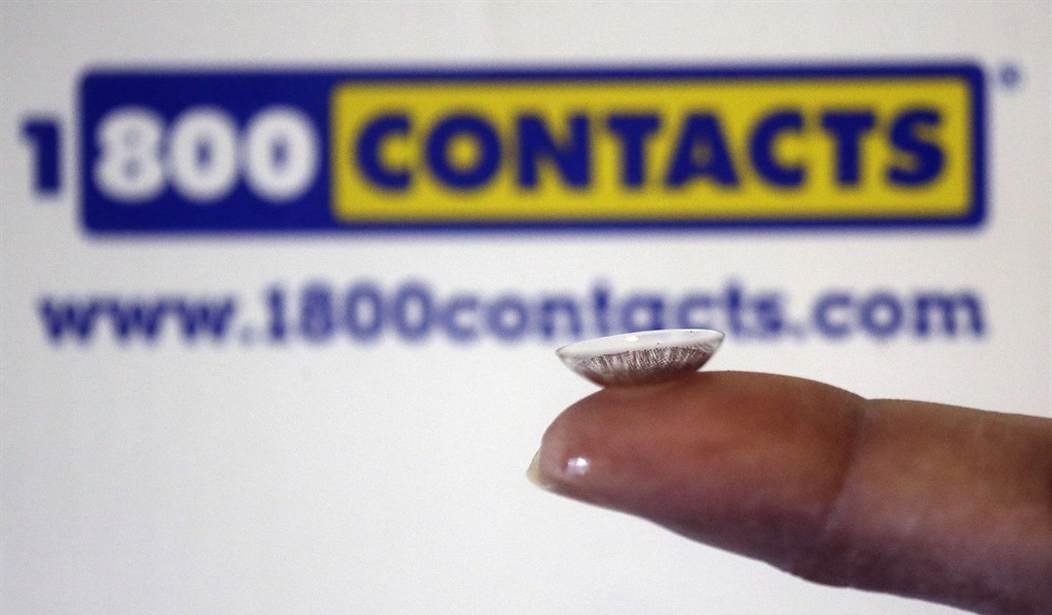Without question, the Fairness to Contact Lens Consumer Act has lived up to its name.
By requiring eye doctors to give patients their prescriptions so they can shop elsewhere for contacts, the 2003 law made the industry far more competitive and prosperous and helped patients receive these products at significantly lower prices.
But there’s new legislation before Congress called the Contact Lens Consumer Health Protection Act that is significantly less likely to live up to its name.
A coalition of the big contact lens makers, the American Optometrists Association and others has convinced Sen. Bill Cassidy, R-La., to introduce legislation members believe would restore those lost profits.
Specifically, the group, known as the Coalition for Patient Care Safety, wants changes in the rules that govern how prescriptions are verified.
Now, if an online seller of contact lenses wants to fill a prescription, it must verify the prescription through the doctor, who has eight business hours to respond. If the lens company does not hear back by then, it can consider the prescription verified.
Under Cassidy’s legislation, the lens companies would have to provide phone, fax and email information so prescribers could submit questions. Doctors could pepper the lens companies with questions, then not sign off on the responses, delaying delivery of lenses indefinitely.
And if that doesn’t work, Plan B is a provision sponsored by Sen. John Boozman, R-Ark., a cosponsor of the Cassidy legislation. This measure, buried in the Financial Services Appropriations bill, would fund studies on the health impacts of using vendors other than prescribing physicians for contact lens purchases. The studies then could be used as cudgels against the industry.
Recommended
The coalition goes to all this trouble because its members realize the 2003 law was a game-changer in favor of consumers. Today, online and retail sales account for more than a third of the market, and prices have remained flat or fallen in most of the country.
Before, the overwhelming majority of products such as contact lenses and accessories and eyeglasses generally were sold by the prescribing opthamologist or optometrist. Even today, sales of products eye doctors prescribe make up 70 percent of their revenues.
This sets up potential conflicts of interests for doctors, who were open to being accused of adjusting prescriptions to increase profits and of engaging in incentive schemes with their eyeglass and contact vendors. This is why no other branch of medicine operates in this way.
The potential to shop elsewhere for contacts, the emergence of big box stores, such as Costco and Walmart, and the Internet boom led to a variety of sellers – online and in person – entering the marketplace. By 2014, it had become an $8.8 billion industry worldwide and a $4.5 billion market in the United States with 41 million daily users.
The doctors and sellers claim all this competition simply isn’t safe. They say patients wait till prescriptions are about to expire, stock up on lenses, then decline to visit their doctors as often as they should. They say rules are not always enforced, and loopholes, such as companies in England being willing to sell to Americans even if they don’t have prescriptions, are becoming commonplace. The only solution, they say, is to restore control of the market to them.
The coalition showed particular concern over microbal keratitis. It claims source of supply, prescription length and prescription requirements contribute to this routine eye infection and that consumers need to know about these dangers.
But in a letter to Cassidy, Dr. Paul B. Donzis, Associate Clinical Professor of Ophthalmology-Cornea Division, UCLA School of Medicine, said a 20-year epidemiologic study of contact lens-related keratitis did not find it was caused by buying lenses online. Indeed, keratitis has not increased since the beginning of the Internet era.
The study also found length of prescription did not play a role. What it did find is most who contract keratitis do so because of actions they took after opening their contact lenses.
Sleeping with lenses on … that’s a problem. Extended wear – wearing a two-week lens for three – also is a problem.
So are poor hygiene, not cleaning the lenses or the lens case, not washing hands and smoking. But when and where they bought their lenses were not factors.
For that matter, Europe and much of Asia no longer require prescriptions for contacts or eyeglasses, and Donzis says incidents of eye disease from contact lenses are no higher there than here. Interestingly, some of the big contact makers have no qualms about selling in unregulated markets overseas even as they call for more regulation here.
If the coalition truly cares about safety, it would encourage more competition and lower prices for consumers. Those who can afford their eye care are more likely to stay current on it with their prescribers and to use them as intended. It might even consider ending the prescription requirement.
But the coalition, with its tradition – unlike any other in healthcare – of moving its products through its prescribers, is not interested in living up to the name of the legislation it has convinced Cassidy to introduce. It is interested in getting the old, pre-Internet, pre-consumer choice profit machine cranking again.
























Join the conversation as a VIP Member